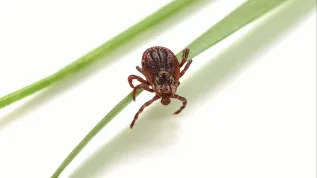
Statins, popular drugs for lowering blood cholesterol that help to prevent heart attack and stroke, significantly improve the survival rates of patients with triple-negative breast cancer, a new study has shown.
The study carried out by scientists from the University of Texas MD Anderson Cancer Center in Houston and the Baylor College of Medicine (also Houston), is the first major experiment to investigate the relationship between this group of drugs and aggressive breast cancer subtypes.
Triple-negative breast cancer (TNBC) is a type of breast cancer that lacks three receptors: oestrogen, progesterone and the human epidermal growth factor receptor 2 (HER2). This means that targeted cancer therapies developed for other types of breast cancer are completely ineffective against TNBC. In their place, very aggressive treatment methods are used, based on chemotherapy, mastectomy, radiation and prophylactic oophorectomy (removal of the ovaries).
TNBC accounts for 10-20 percent of all diagnosed breast cancers and is considered to be the most aggressive subtype of this disease. The five-year survival rate for it is 77 percent, and if it metastasises to other organs - 11 percent.
This study found that statin use resulted in a 58% relative improvement in breast cancer-specific survival and a 30% relative improvement in patients' overall survival.
Dr. Kevn Nead who led the study said: “There is already a body of literature on statins and breast cancer and the results have been inconsistent. Previous research has looked at breast cancer as only one disease, but we know there are many subtypes of breast cancer and we wanted to focus our research on this particularly aggressive form of breast cancer that has limited effective treatment options.”
In total, the observations, which lasted 3-4 years, included data from 23,192 women over the age of 66 with stage I-III breast cancer. Of that number, 2,281 were taking statins (they started a statin within one year following their breast cancer diagnosis).
The analysis showed that the most effective statin activity (greatest improvement in scores) was seen in women with early stage TNBC. When examining statin intensity, high-intensity statin use had the strongest effect on overall survival among the subjects. Researchers also found a statistically significant association between lipophilic statins (simvastatin, atorvastatin, lovastatin, fluvastatin, pitavastatin) and improved overall survival.
Dr. Nead said: “We know that statins decrease breast cancer cell division and increase cell death.
“Our study shows that there is an association between statins and improved outcomes in TNBC, and it is time to pursue this idea further in a prospective trial.”
The research was published in Cancer (DOI: 10.1002/cncr.33797). (PAP)
Katarzyna Czechowicz
kap/ ekr/
tr. RL













